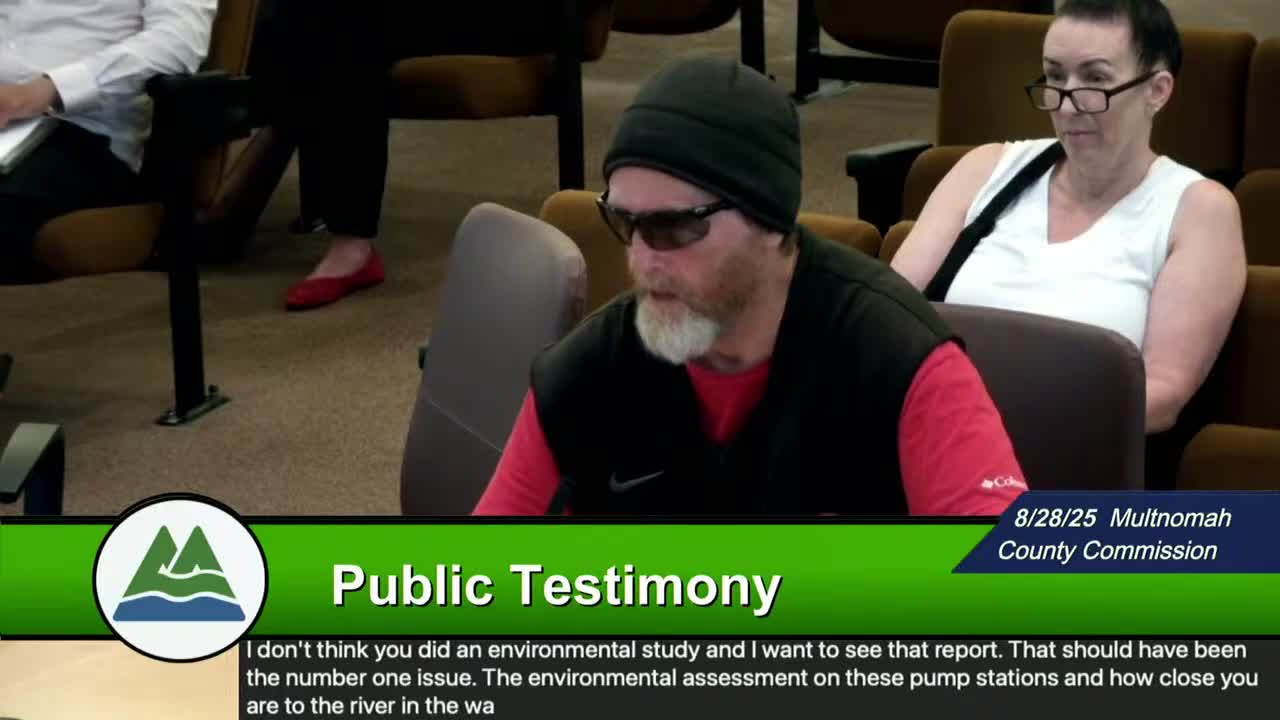Multnomah County Board Approves Budget Modification and Reaffirms DEI Commitment
August 29, 2025 | Multnomah County, Oregon
Thanks to Scribe from Workplace AI , all articles about Oregon are free for you to enjoy throughout 2025!

This article was created by AI using a video recording of the meeting. It summarizes the key points discussed, but for full details and context, please refer to the video of the full meeting. Link to Full Meeting
One of the most heated moments came when a public commenter raised concerns about the integrity of environmental assessments related to local waterways. The individual accused the county of misusing grants intended for river patrol, alleging that the necessary environmental evaluations were not conducted properly. This claim underscored a broader anxiety about the county's commitment to maintaining clean waterways, a vital resource for the community.
In response, Chet Hagen, a representative from the city of Portland, assured the board that all land use rules were followed in the design of a new pump station. He emphasized that the upgrades aim to prevent discharges into the Willamette River and that the station is situated above the hundred-year floodplain, addressing the public's environmental concerns.
As the meeting progressed, the commissioners shifted their focus to reaffirming their commitment to DEI initiatives. Commissioner Moyer took the opportunity to clarify that the county would not roll back its DEI programming. Instead, the review process aims to ensure compliance with existing civil rights laws, reinforcing the county's mission to provide essential services to its most vulnerable populations. Moyer articulated the importance of an equity lens in delivering health and safety net programs, emphasizing that without it, many community members could be left behind.
Commissioner Singleton echoed these sentiments, highlighting recent community engagement efforts, including a town hall focused on addiction recovery and the need for supportive services. He stressed the importance of timely interventions for individuals seeking recovery, noting that failing to provide adequate support could lead to setbacks for those trying to overcome addiction.
The meeting also touched on transportation funding, with Singleton urging state legislators to honor commitments made to the Black community regarding the Rose Quarter Improvement Project. He expressed frustration over decades of unfulfilled promises and called for accountability.
As the session drew to a close, the commissioners expressed gratitude for the staff's efforts in launching a new development opportunity in Walnut Park, signaling a proactive approach to community engagement and development.
This meeting, while short, encapsulated the ongoing challenges and commitments facing Multnomah County. As officials navigate environmental concerns, social equity, and community safety, the discussions reflect a community striving for transparency and accountability in governance. The path forward remains complex, but the commitment to addressing these critical issues is clear.
Converted from 08.28.25 Regular Meeting meeting on August 29, 2025
Link to Full Meeting
Comments
View full meeting
This article is based on a recent meeting—watch the full video and explore the complete transcript for deeper insights into the discussion.
View full meeting
